In this digital age, where one can easily buy and sell goods and services with just a tap of their fingertips, companies must have a strong ecommerce presence to have a successful ecommerce business. With many ecommerce startups and established ecommerce companies now in the competitive market, building a team dedicated to ecommerce (web development, content creation, digital marketing efforts, transaction search engine optimization) in handling their online store is vital in this business model. However, maintaining an ecommerce website can be costly, complex, and time-consuming; thus, many ecommerce companies outsource to build their ecommerce website and manage their online store.
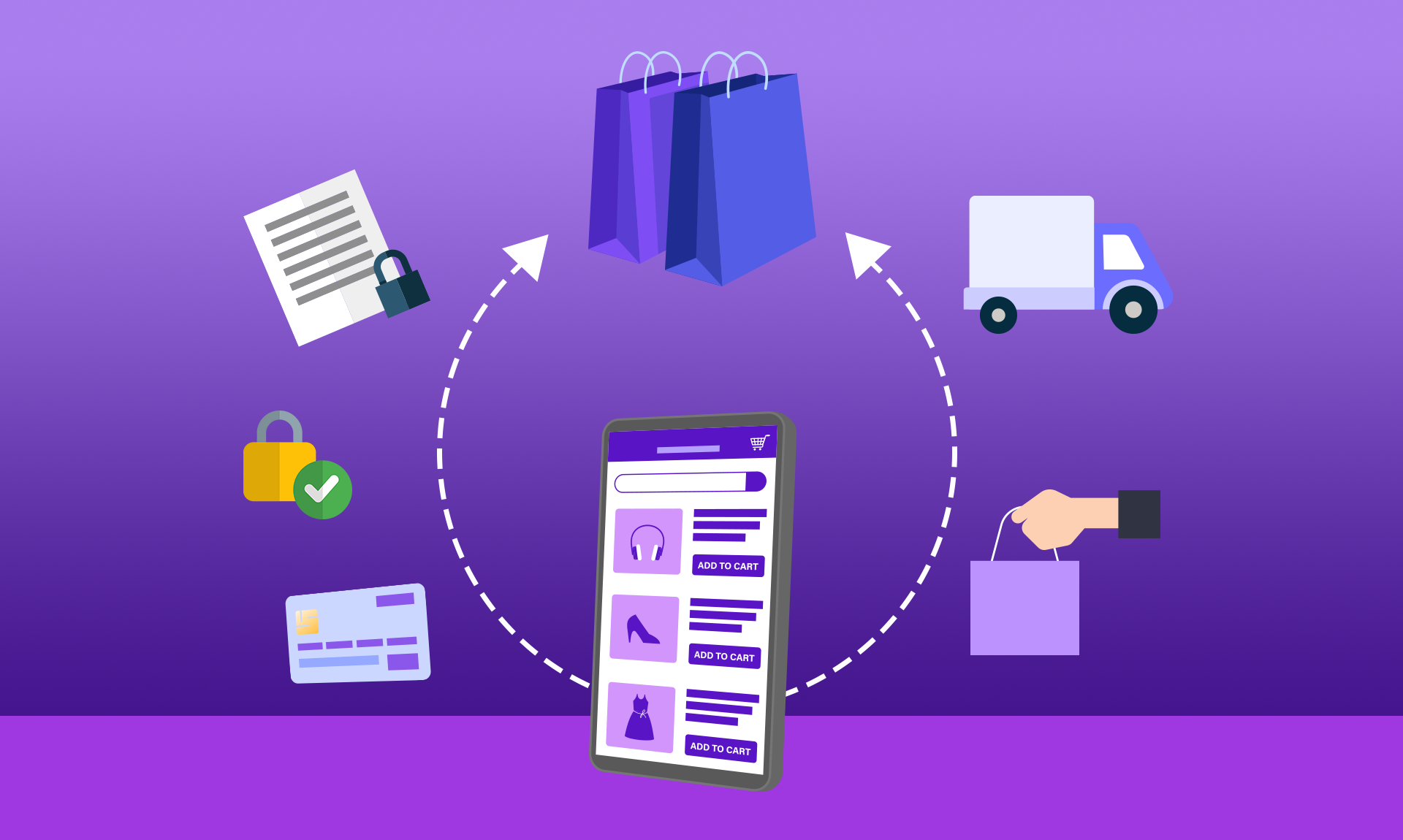
This article will talk through the reasons for selecting outsourcing ecommerce, the factors that affect the cost of outsourcing, comparing outsourcing ecommerce web development and building an in-house ecommerce team, as well as the factors to consider in choosing a firm to outsource your ecommerce business requirements.
At the end of this article, you will possess a deeper understanding of the wide price range of ecommerce website development costs as well as the web hosting costs of an ecommerce platform and the reasons why outsourcing ecommerce website development or ecommerce platform could be the most suitable choice for your company’s ecommerce store.
Why Should You Outsource E-commerce?
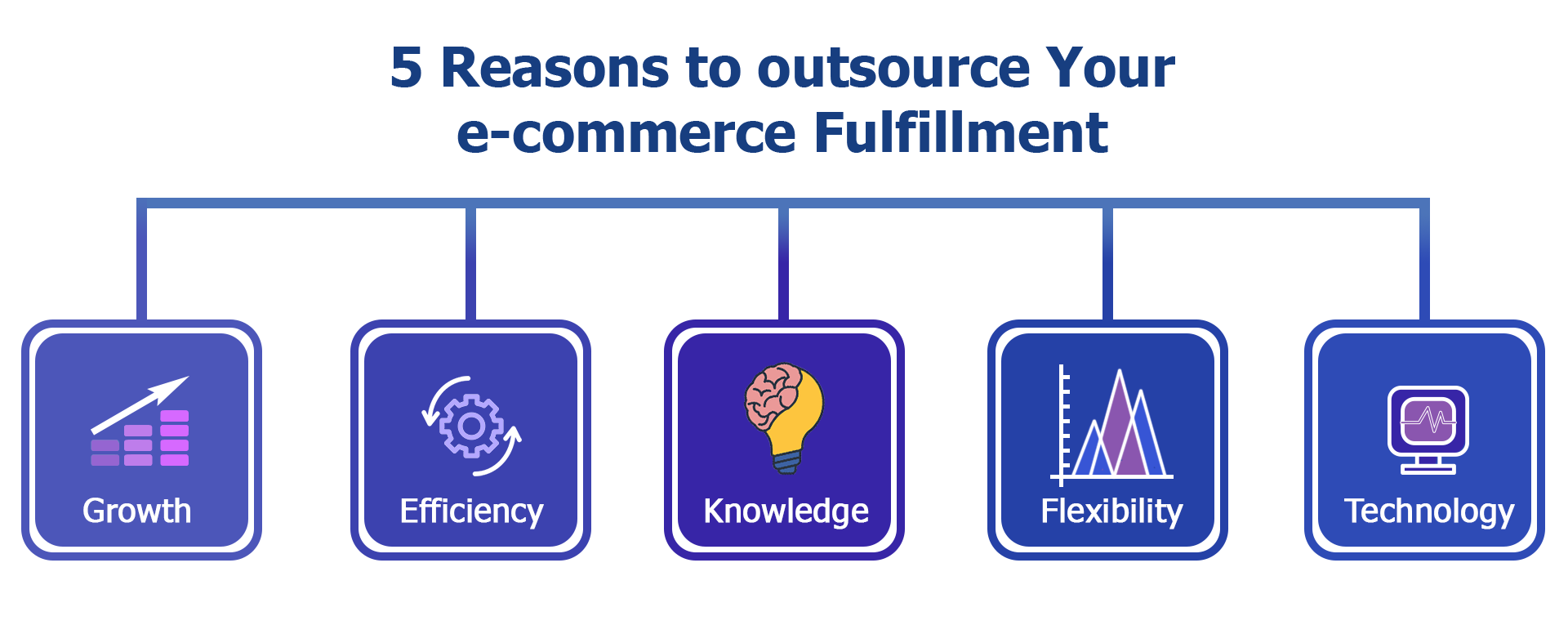
There are several reasons to consider outsourcing to build and manage your ecommerce site:
Cost Savings
For companies of all sizes, outsourcing e-commerce can be a cost-effective solution. By outsourcing, businesses can avoid paying for the hiring, training, and maintaining in-house staff and the cost of technology and equipment. Additionally, outsourcing enables companies to concentrate on their core competencies and delegate to subject-matter experts the challenging and time-consuming task of managing an ecommerce website.
Time Savings
Businesses can reduce the time and effort needed to set up and maintain an online store by working with an experienced ecommerce company. Businesses may have more time to devote to their digital marketing efforts, customer service, and inventory management which can help them run more efficiently.
Reduced Errors
Since errors can result in customer dissatisfaction, lost sales, and damage to the company’s reputation, reducing mistakes is crucial for an ecommerce business. Businesses that consistently make errors risk losing customers to rivals who offer a better customer experience in the fiercely competitive ecommerce market.
Outsourcing to create and manage your ecommerce site will decrease the likelihood of errors and downtime as these companies have the knowledge and experience to manage an online store efficiently. Thus, it can aid an ecommerce business in maintaining their reputations and averting costly errors.
Access to Expertise
Expertise in various areas, including product development, marketing, customer service, and operations, is essential for the success of ecommerce businesses. It enables companies to produce cutting-edge goods, design robust marketing plans, deliver top-notch customer service, and streamline operations. Access to expertise ultimately results in higher sales, happier customers, and long-term growth.
Outsourcing ecommerce firms are knowledgeable and skilled in creating and managing profitable online stores. Companies can access the most recent tools, technology, and management techniques for managing e-commerce websites by working with an established ecommerce firm. Moreover, outsourcing firms have a pool of high-caliber employees that will focus on creating and managing your ecommerce site, growing your business exponentially.
What Impacts the Cost of Outsourcing E-commerce?
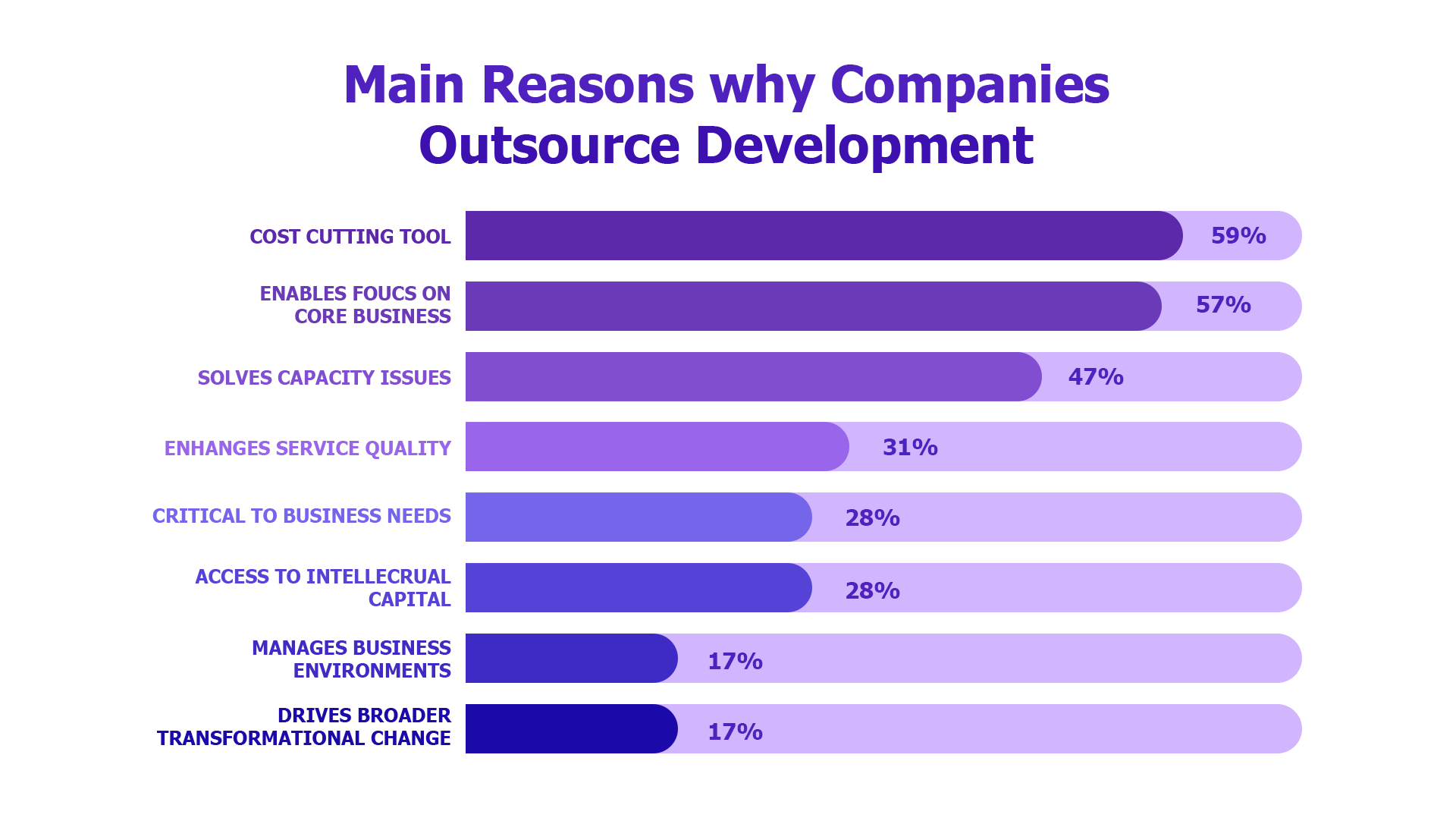
Various factors influence outsourcing to create and manage an ecommerce site for an ecommerce store:
Size of the Company
Ecommerce website cost varies based on the size of the company. For a small business, one can create an ecommerce website using an existing template through DIY services such as Shopify, Wix, and WordPress, which with a small significant cost. Moreover, mid-sized companies can utilize an ecommerce platform that may have a monthly cost for web hosting costs or ask for a percentage per sale to cover ecommerce website costs. On the other hand, large corporations may need to create their custom ecommerce website, which can have a much higher web development cost.
Level of Service Needed
A business that seeks to outsource custom development of their ecommerce site costs higher as the building process and the complex features of the work involved in the website development process, custom software development, and technical expertise, are considered. Thus, a basic ecommerce website design with basic features will cost less than a complex ecommerce website.
Location
Companies based in nations with lower labor costs, like India or the Philippines, may be able to outsource ecommerce website development and management for less money than businesses with headquarters in countries with higher labor costs, like the United States or Canada.
Customization
Businesses typically select a pre-designed package or an existing standardized template that can be easily replicated for various clients when outsourcing ecommerce services. However, customization entails adjusting these packages to meet each client’s particular requirements, which frequently necessitates extra work like modifying software code, integrating with various systems, or developing one-of-a-kind designs. The additional work can result in higher costs for the outsourcing provider, who might need more resources to complete the project. Because of this, companies that need customization typically pay more than those that choose standard packages.
Additionally, customization frequently necessitates more interaction and cooperation between the client and the outsourcing provider, which can raise the overall cost because the service provider must comprehend the client’s particular needs, preferences, and requirements and may need to revise or modify the project in response to feedback.
Average Costs to Outsource E-Commerce

Small Business
Small businesses such as ecommerce stores can create their own ecommerce website for $60-$3,500+ per year. Website builders have pre-made web design templates which businesses can use. Moreover, the cost may include additional elements and plugins and regular updates and support.
Mid-Sized Company
Mid-sized companies may seek to outsource ecommerce that costs between $3,000 and $10,000 per month. The services may include ecommerce website design and development, product catalog management, order fulfillment, and customer service.
Large Corporation
Large corporations may seek to outsource custom development for their ecommerce website which costs between $5,000 – $25,000+ per month or even more depending on the complexity of their custom ecommerce website. The services may include custom ecommerce website design and development, product catalog management, order fulfillment, and customer service.
Outsourcing E-commerce Platform vs. In-House E-commerce Team
Initial Setup Costs
Outsourcing Ecommerce platform
The company can save money in hiring and training an internal team when outsourcing e-commerce. They can instead rely on the outsourcing firm’s resources, which include specialized knowledge, technology, and support services, thus freeing the company to concentrate on other aspects of its operations, such as marketing or product development.
Building an In-House Ecommerce Website
Significant financial, human, technological, and physical resources are needed to build an internal e-commerce team. To develop and maintain the e-commerce platform, the company must hire and train employees with the requisite skills. In addition, they will need to spend money on office supplies, equipment, and technology like servers and software, thus can require a significant time and financial commitment and may take resources away from other parts of the company.
Ongoing Expenses
Outsourcing Ecommerce platform
The main ongoing cost when outsourcing e-commerce is paying the outsourcing firm for its services which can include expenses for upkeep, updates to the e-commerce platform, and any extra assistance or services the company needs. Outsourcing can avoid recurring costs like salaries, benefits, and other employee-related expenses from maintaining an internal team.
Building an In-House Ecommerce Website
Developing an internal ecommerce team necessitates ongoing costs that can be high. The company will cover the team members’ wages, benefits, and ongoing expenses for maintaining and updating the e-commerce platform. Thus, it could involve paying for server upkeep, software licenses, and other tech-related costs. The company may also need to invest in ongoing training and development to ensure its team members have the skills to keep the e-commerce platform current and competitive.
Total Cost of Ownership
Outsourcing Ecommerce platform
As no significant investments in technology or personnel are required, the overall cost of outsourcing e-commerce may be lower than that of creating an in-house team. However, outsourcing costs can accumulate over time, mainly if the company constantly updates and modifies its ecommerce platform. The company can save money in the long run by outsourcing by avoiding many up-front and ongoing expenses related to assembling an internal team.
Building an In-House Ecommerce Website
It is expensive to build an in-house e-commerce team, with setup costs, ongoing costs, and a higher total cost of ownership. To develop and maintain the e-commerce platform, the company will have to invest in technology, personnel, and other resources, which can be expensive in terms of time and money. However, for some businesses, having an in-house team can give them quicker access to change and update the ecommerce operation and greater control over it.
Overall, outsourcing ecommerce is a cost-effective way to upscale your business’s digital presence raking revenues while not spending resources on building and managing an internal ecommerce team.
Choosing the Right Outsourcing E-commerce Firm
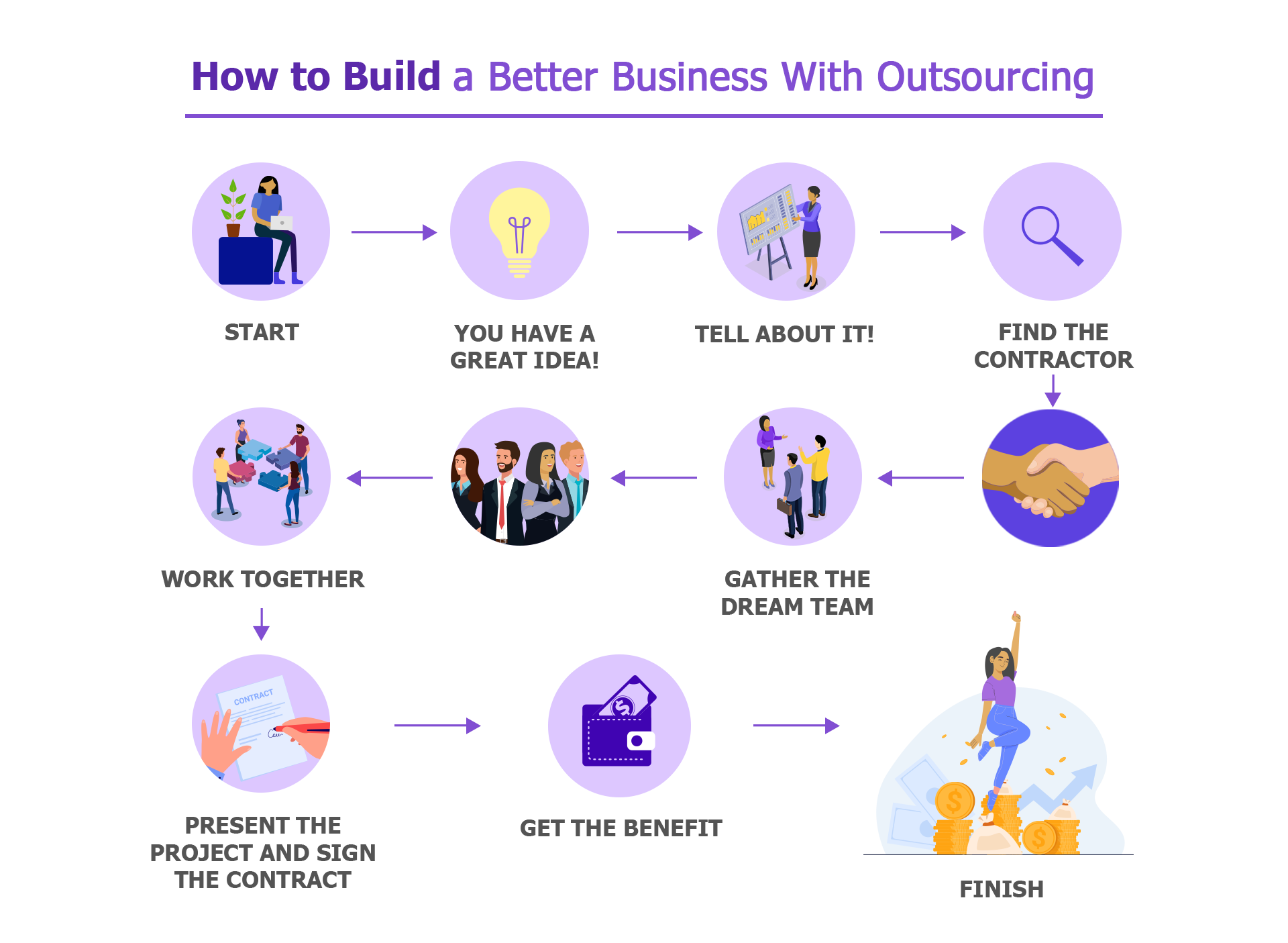
Reputation and Experience
The standing of an outsourcing company in the market reflects the general opinion of its brand and the degree of client satisfaction. They give helpful information about the caliber of services and expertise a provider can deliver. Businesses can learn more about the caliber of a provider’s work, their capacity to meet deadlines, their communication abilities, and their level of professionalism by assessing their reputation.
Experience determines the outsourcing provider’s expertise and familiarity with ecommerce projects. An expert provider will thoroughly understand the ecommerce sector, its difficulties, and the best practices for completing tasks. Additionally, they will know the most recent trends and technologies, giving them the edge in developing creative solutions and staying on top of things.
Quality of Service
In choosing an outsourcing ecommerce firm, consider the quality of service delivered in their past ecommerce website design projects. Be it a basic ecommerce website or a complex custom ecommerce site, the performance delivered should be consistent to ensure that your customers will have the best shopping online experience.
Consider outsourcing firms that hold an SSL certificate from their past works and have saas platforms integrated into their systems. Moreover, the firm should be able to conduct competitor analysis and the right SEO strategy to apply in an ecommerce project. Choosing the right outsourcing firm to build your ecommerce site will provide your company with a competitive edge in building your ecommerce website and content creation
Integration with existing systems
Integrating existing systems enables ecommerce companies to optimize their work systems and increase efficiency in operating their ecommerce websites. Typically, ecommerce companies typically utilize several systems and applications to manage their online store. Such include inventory management, payment processing, shipping, and customer relationship management software. When outsourcing ecommerce, you must ensure that the provider can integrate with your existing systems and applications without a hitch.
Customer Support
Ecommerce companies should ensure that ecommerce firm can provide their customers with top-notch customer support before outsourcing ecommerce services. As customer service is frequently the first point of contact between a company and a customer, it dramatically impacts how the customers view the brand. Moreover, in an ecommerce business, customer support is vital to answer customer queries, resolve customer concerns, and receive customer feedback.
People
The people behind the outsourcing firm also matter in choosing your ecommerce service provider, as these people will provide ecommerce services to your business. Their level of expertise, experience, and professionalism will significantly impact your business. Moreover, the outsourcing firm’s values will also reflect how they will value you as their client and how they will handle your customers as they deliver their work, reflecting your brand’s image.
Processes
Processes entail the outsourcing firm’s procedures in delivering services that can impact the ecommerce project’s effectiveness and communication between your business and them. Using clearly defined processes can decrease the risk of errors and inconsistencies as the work is delivered consistently. They can reduce bottlenecks, speed up project delivery, and streamline workflows, lowering costs for the company.
Additionally, well-defined processes can guarantee that communication is timely, concise, and clear, lowering the possibility of misunderstandings and mistakes. Thus ensure the quality of the operations of the outsourcing firm, as it can significantly impact your business’ overall experience.
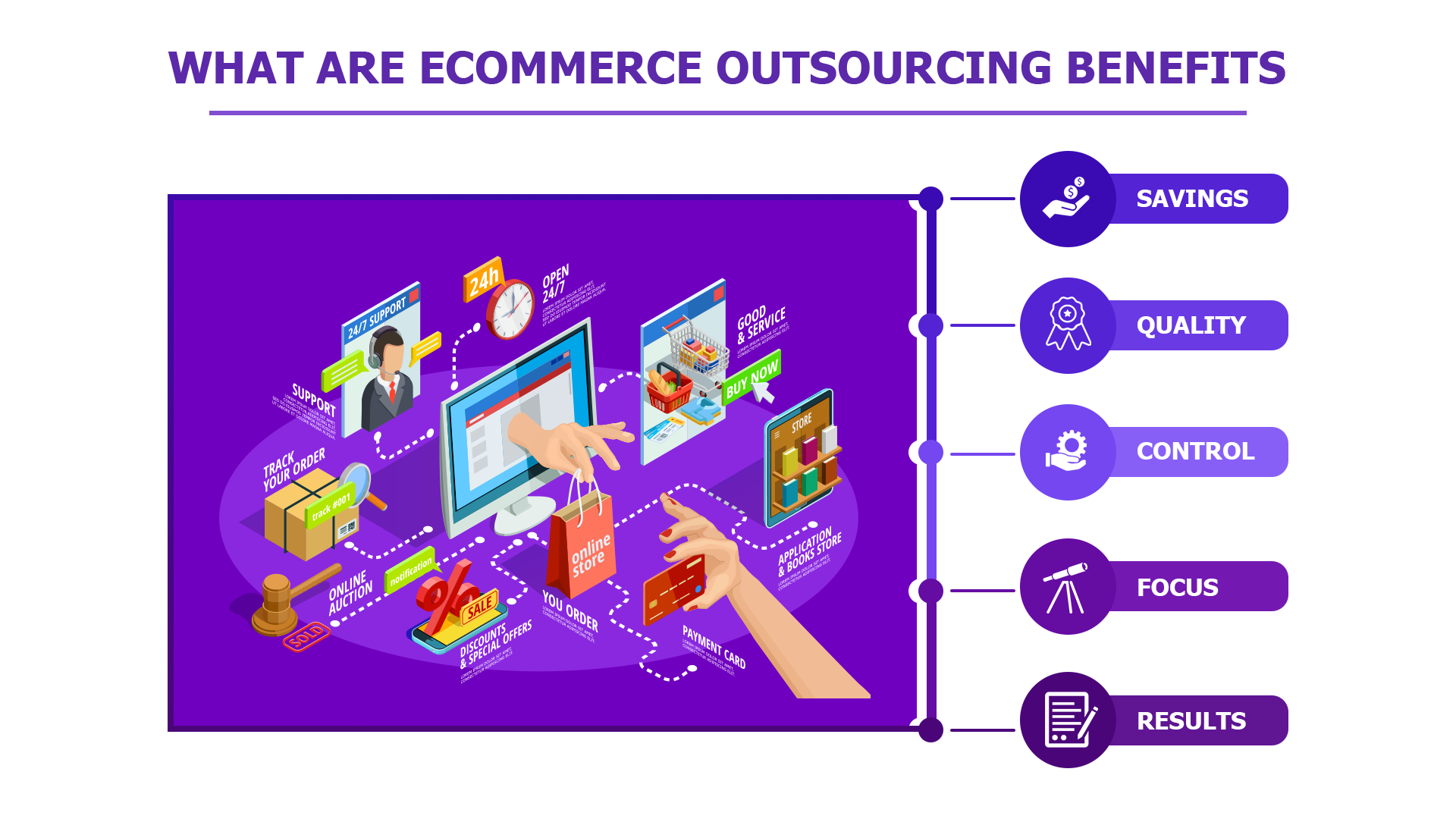
Outsourcing ecommerce website development and management needs is more cost-efficient and productive. Using the expertise of ecommerce outsourcing firms, companies can create a first-rate, valuable, and engaging online presence without worrying about preparing, hiring, and managing an in-house team. The size of the company, the project’s complexity, the firm’s location, and customization can all affect the cost of outsourcing ecommerce. However, it is a wise investment for many businesses considering potential cost savings, time savings, and access to specialized skills.
When weighing your options, it’s essential to consider your business’s particular needs, the resources at your disposal, and the long-term goals of your online presence. With all of this in mind, carefully weigh the benefits and drawbacks of building an in-house ecommerce team versus outsourcing an ecommerce team to make an educated decision that best supports your brand image and will generate your target revenue.



Leave A Comment
You must be logged in to post a comment.